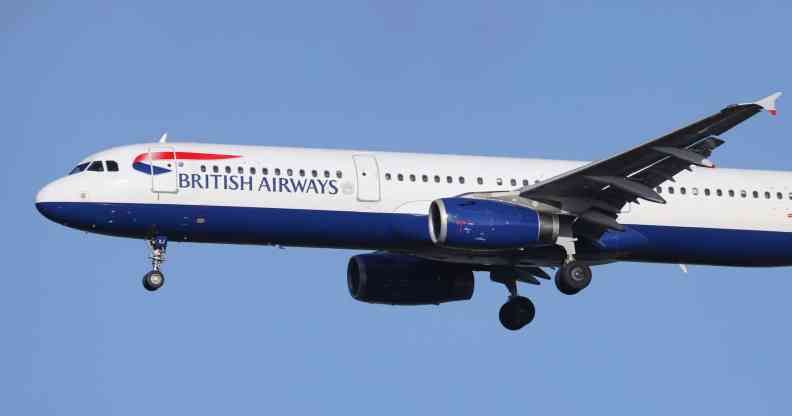British Airways drops ‘ladies and gentleman’ in favour of gender-neutral greetings

British Airways pilots will switch to greetings that include people of all genders. (Nicolas Economou/NurPhoto via Getty Images)
British Airways is the latest airline to drop the binary “ladies and gentlemen” greeting on-board in favour of language that includes people of all genders.
The change in announcement has been made in order to “reflect the diversity” of those travelling, which reportedly is due to the larger numbers of children travelling post-lockdown as well as increasing recognition of trans and non-binary customers.
Pilots have apparently been told to use gender-neutral language when making their pre-flight greetings and announcements. Alternatives to welcoming “ladies and gentlemen” could include welcoming “people”, “travellers”, “passengers” or “guests”.
When asked about the change in on-board greeting, a spokesperson for British Airways told The Telegraph: “We celebrate diversity and inclusion and we’re committed to ensuring that all our customers feel welcome when travelling with us.”
The move by British Airways brings it in line with current practice in many UK airports, where gendered greetings have already been dropped.
Moreover, multiple international airlines have already adopted more inclusive language. EasyJet, Air Malta, Qantas, Japan Airlines, Delta, JetBlue, United and American Airlines have all already made the change.
Transport for London stopped using “ladies and gentlemen” in 2017.
Sir Martin Sorrell, the founder of WPP, the world’s largest advertising agency, told The Telegraph that things like traditional, binary greetings were not a priority for airline customers.
“Whether that’s fortunate or unfortunate, it’s a sign of the times,” he said. “The important thing is not the announcements, it’s the food, the Wi-Fi, the service, the speed of getting on the plane and getting off the plane.”
Using gender-neutral pronouns and language makes people more positive towards women and LGBT+ people and less biased towards men, research has previously shown.
More than 3,000 people took part in the research, which was published in the Proceedings of the National Academy of Sciences (PNAS) in 2019.
The researchers found that using more inclusive language “reduces the mental salience of males” and that the shift was associated with “people expressing less bias in favour of traditional gender roles and categories, as manifested in more positive attitudes toward women and LGBT individuals in public affairs”.

